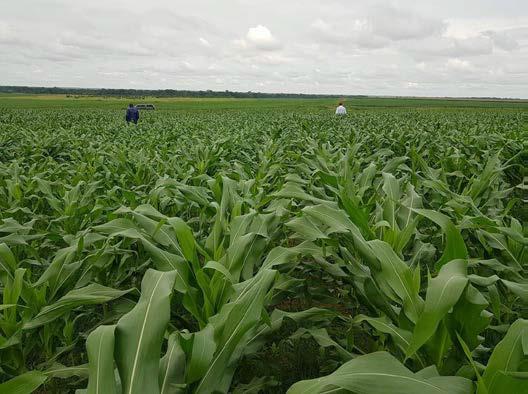
Quality certified seed is critical in improving agricultural productivity in Africa
To enhance agricultural productivity, improve food security and raise domestic economic activity among smallholder farmers within the continent that is dependent on agriculture for economic mainstay, there is need to use improved, quality certified seeds to increase yields for farmers.
Quality certified seed is critical to enable farmers to raise agricultural productivity, increase income and reduce poverty. However, farmers continue to suffer low crop yields and even frequent crop failure due to the use of poor-quality seed or reduced availa-bility of better performing seed.
A critical component to the realisation of quality certified seed is foundation seed or parent seed, also known as early generation seed. Still, many of the independent seed companies that service Africa’s smallholder markets have difficulties with production and maintenance of quality foundation seed, resulting in a low and inconsistent supply, which in turn impacts the availability of certified seed for sale to farmers. It is estimated that 80 percent of the small and medium sized seed companies, who can reach more than 60 percent of smallholder farmers in SSA, struggle to produce a consistent supply of quality foundation seed due to technical, infrastructural and financial challenges.
To assist seed companies addressing the challenge of accessing essential parent seed to ensure consistency in production of foundation seed, QualiBasic Seed Company (QBS) is scaling up its operations in Africa to offer a commercially sustainable foundation seed supply solution to seed companies and farmers in Africa. QBS supports seed companies in SSA to ensure the quality of certified seed by operating a centralised system that manages foundation seed production, quality control and storage, in a highly effective and efficient way.

Luiz Silva, Production Consultant, and Davison Silungwe, Production and Supply Manager, are very satisfied with the progress of their maize.
Recently, QBS commissioned a seed processing plant in Zambia where the company has invested in the latest processing equipment from PETKUS, which allows each grain of seed to be cleaned, separated into sizes, and any contamination by foreign bodies removed using an array of cleaners, sizers and gravity separation. Once processed, the seed can then either go into cold storage or be treated and bagged for sale. This use of gentle, high precision equipment is another critical step in producing high quality seed.
According to the QBS managing director Andy Watt, it is paramount for seed producers to observe high standards in seed production. “As a company specialised in production of foundation seed for independent seed companies, we work with seed companies to help them realise their goal of producing quality certified seed by taking off the burden of foundation seed production from them,” said Watt during the commissioning of the plant in Zambia. He pointed out that QBS is committed to producing and preserving seed quality, giving significant attention to details in the field production stages.
To ensure the quality of the seed is preserved, the production facility allows for selection of seed from any stage in the process and puts it into cold storage where the seed can be kept in the very best condition for extended periods at 10 degrees centigrade and 50 percent humidity – these cool and dry conditions are key to preserving quality.

Davison Silungwe is all smiles when he admires the results of QBS’ good quality seed.
“Once we have received an order, we put the seed through our latest rotary batch treater to apply appropriate seed treatments to assure the best germination and early season growth of the plant and then finally we bag and label the seed for sale in multiples of 1 000 kernels, reflecting the high quality and indeed high value of QBS foundation seed,” explains Watt.
Beginning this year, QBS will include a polymer coating in the seed treatment process to ensure the seed flows and transports well, the seed treatment remains on the seed, improving field performance as well as reducing exposure of operators to any dust and chemicals.
The company will continue to make foundation seed production more cost effective and efficient for seed companies so that they can improve their production cycles by being able to access high quality foundation seed in a timely manner.